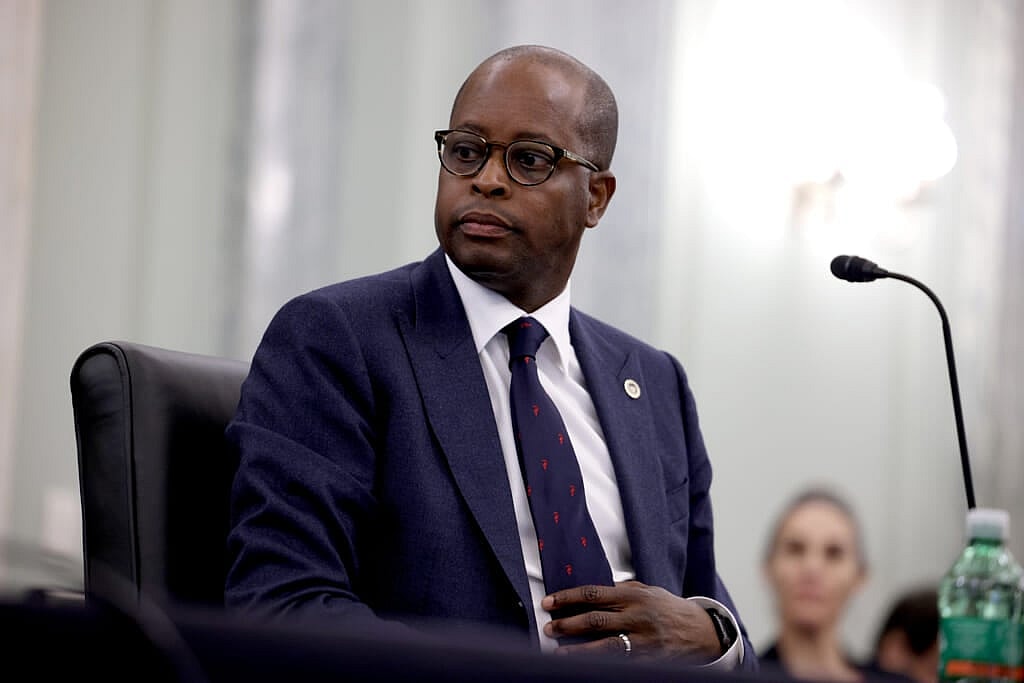Howard University student activists and alumni are growing frustrated with the Hilltop’s administrative leadership. Since Reverend Jesse Jackson’s meeting with the HBCU’s president they say little progress has been made.
The university, however, told theGrio in an exclusive statement, “we are hopeful that a resolution will soon be reached. Howard University President Wayne A.I. Frederick met with Rev. Jesse Jackson during his visit to Howard’s campus on November 1.”

Howard added, “all official negotiations in regard to the protest have remained between the University’s general counsel and the legal counsel representing this group of students.”
But many members of the alumni community are still on guard and want to see more from the administration to resolve the conflict, sparked by widespread complaints of poor living conditions including campus mold and rodents.
“I have no confidence in this administration, zero confidence, because they haven’t shown any love to our children,” said Steven Jackson, a 1986 graduate of Howard University and member of Howard Alumni United.
Taking both the cybersecurity attack that took the campus offline, as it kicked off fall semester during a pandemic, and the housing crisis that is causing students to camp out as Washington, D.C. heads into colder months, Jackson said the administration is “absolutely not” protecting the students from a digital or physical perspective on campus.
Tensions on the campus are bubbling over in other ways as well. Specifically, the strain on Bison relations with campus security turning volatile as students of the past and present confront what they call a theme of lacking transparency at the illustrious historically Black university.

Tuesday evening, while theGrio was on the ground, Howard University Police arrived at the Blackburn Center — where protesters have been demonstrating for weeks — and told Steven Jackson and other alumni who were filming on the property they had to shut down production. A student who was in the midst of an interview with the alums observed that an officer who had previously had a physical altercation with student protesters was among the team sent to shut down filming on campus.
“My question is why is this armed officer putting his hands on students when he’s not allowed to do that and why do y’all keep bringing him up here?” Tyler Davis asked campus security officers.
“That wasn’t a student, young lady. That was a full grown adult,” the officer in question shot back.
Just after that comment was made, an unmarked car that was driven by another member of campus security told the officers to return to their cars because the interaction was being filmed.
According to the university, “an internal investigation of the allegations of assault involving Officer Smith has been conducted and found that no assault occurred. Officer Smith is continuing patrols on his regularly scheduled shift.”
Jackson was also present when actresses and sisters, Phylicia Rashad and Debbie Allen, engaged students about the ‘Blackburn Takeover’ protests last Friday. Rashad’s comments questioning the integrity of the protesters’ ongoing negotiations have created a conversation among the broader Howard University community of students, alumni, parents and donors.
Jackson contends Rashad has been speaking from a personal place, but admits the comments were “insensitive.” However, students believe the comments are a deeper concern.
“It doesn’t seem like she’s here for progress. It doesn’t seem like she’s here to be supporting students and to be facilitating them and helping them grow and achieve their goals, which is her job as a dean of this school,” Yaya Manuel, a freshman among the Blackburn protesters. “And for her lack of understanding of the student body, we would much rather prefer having someone else who actually cares about the students well-being, then having someone who dismisses our efforts of trying to make progress in the community.”
Additionally, alumni believe Rashad’s comments highlight a larger issue — alumni no longer have the ear of the university’s president and other decision makers on campus.

“The demands aren’t that great. And there have been some decisions that have been made that alumni didn’t get a chance to weigh in on or anything,” explained Janet Hails, a Howard alumna of the class of 1976.
Hails is referring to a recent removal of alumni and student representatives from the university’s board of trustees. Traditionally, having a seat on the board offers the opportunity to weigh in on decisions, share perspectives on issues raised in meetings and access to transparent updates on the administration’s activities.
But alumni say they are now in the dark and share concerns parallel to student activists.
“That’s really what started all this mess,” said Barbara Covington Gardner, another Howard alumna of the class of 1976. “I think the students and everybody would have at least tried to talk to them. But when they’ve got mold and all these things in the dorm? And you remove their voice? Come on now.”
Have you subscribed to the Grio podcasts, ‘Dear Culture’ or Acting Up? Download our newest episodes now!
TheGrio is now on Apple TV, Amazon Fire, and Roku. Download theGrio today!

